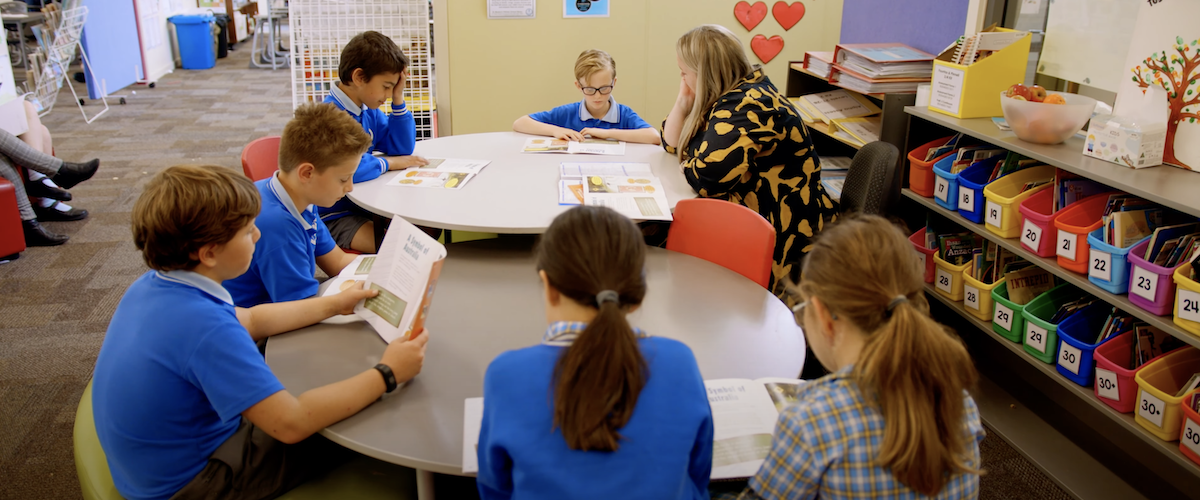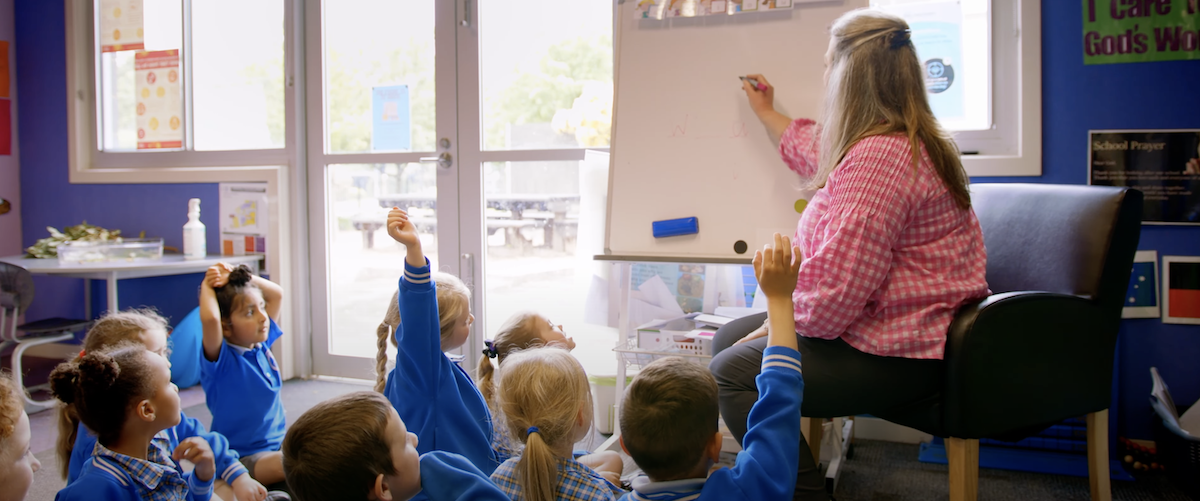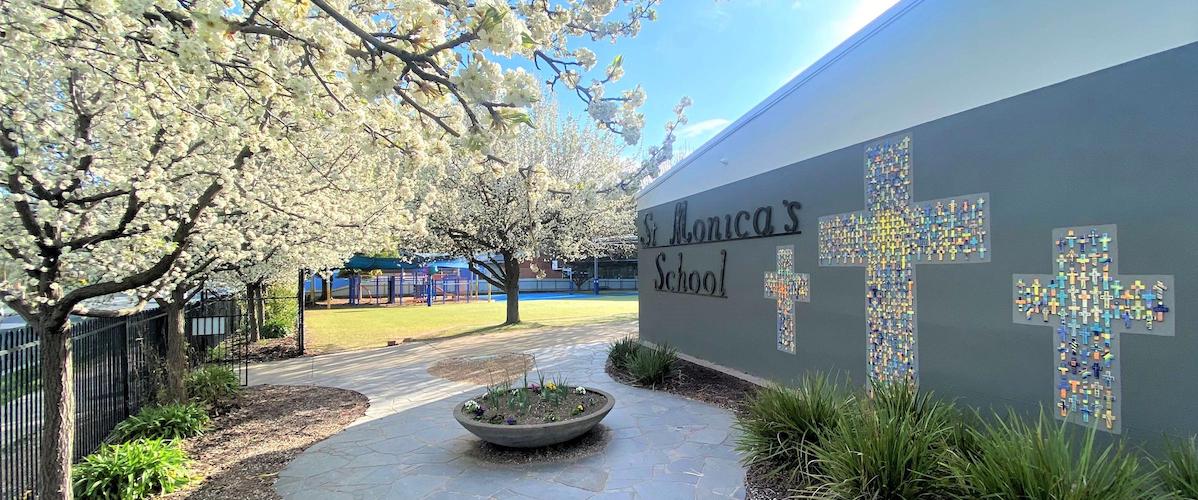RATIONALE:
All children have a right to feel safe and to be safe. As teachers, we have a legal and moral responsibility to respond to serious incidences involving abuse and neglect of the children with whom we have contact, and to report instances that involve physical, emotional, psychological, sexual abuse or neglect.
The dignity of the human person, who is created in the image and likeness of God, is the foundation of Catholic Social Teaching. This Catholic anthropology leads us to afford all people, but especially children, young people and the most vulnerable, the highest respect. Within this context, effective Catholic schools provide a safe, supportive and secure environment that promotes respect and care and values diversity. The mental, physical, spiritual and emotional wellbeing of children and young people are essential preconditions for successful learning. These qualities cannot be developed for individuals in isolation from the health and wellbeing of the school community as a whole.
Saint Monica’s is committed to the creation of a safe, just and respectful environment that supports wellness for all members of the school community. In this, there is a moral obligation and shared responsibility to protect the most vulnerable members of the community.
Saint Monica’s believes that, while protecting children and young people against sexual abuse is a community wide responsibility, schools have particular moral and legal responsibilities to ensure children and young people are safe in their care and to actively and intentionally work to eliminate all forms of abusive behaviours towards children. There are also particular moral and legal obligations for those in authority to prevent, reduce and minimise child abuse and exploitation in all forms.
AIMS:
This policy applies to whole school community in supporting safe environments for all children and young people.
It concerns the responsibilities of schools in complying with the provisions of the Victorian Working with Children Act 2005, which was enacted to assist in protecting children from sexual or physical harm by ensuring that people who work with, or care for, them are subject to a screening process. [Working With Children Act 2005, s.1(1)]
A Working with Children Check (WWCC) is required of most people involved in twenty occupational fields of child-related work as paid workers or volunteers - where that work is not directly supervised by someone with an appropriate check:
- Current members of the Victorian Institute of Teaching are exempt from requiring a WWCC as they already undergo a similar regular check
- Clergy and those performing duties of a religious vocation are specifically identified as requiring checks. A school will need to see the WWCC for these people as well, including the Parish Priest
- Sporting clubs also fall within these twenty occupational fields. Schools should consider how they will ensure associated sporting clubs manage their responsibilities
- A check is required of people working in schools, including employees, volunteers and self-employed persons, as well as officers of a body corporate, members of committees of management, and persons involved in practical training, e.g. student teachers. There are some exceptions to this requirement, and schools must ensure these are understood and incorporated into their procedures and practice.
While staff are responsible for obtaining their own check, each School must ensure valid checks are held by all those requiring one.
This also means that each school must ensure all teaching staff maintain their registrations with the Victorian Institute of Teaching and makes it even more critical that the school maintains ongoing records of this.
Volunteers who work with children will also require a WWCC, unless they are exempt.
NOTE: A Working with Children Check is a minimum requirement of a school’s Duty of Care – it provides evidence that a person has not been found guilty of sexual abuse. It does not endorse any person as being suitable to work with children. Systematic and rigorous screening processes also need to be undertaken in every school to reduce as much as possible the risk of harm to any student.
KEY PRINCIPLES:
- A safe environment is required to protect children and young people from harm and to prevent staff from abusing their position of authority and trust.
- The child and young person's ongoing safety and wellbeing must be the primary focus of all decision making.
- School leaders and staff must be fully self-aware of, and comply with, their professional obligations and responsibilities.
- The commitment to protecting children is embedded in the organisation’s culture and responsibility for taking action is understood and accepted at all levels of the organisation.
DEFINITIONS
For the purposes of the Working with Children Act 2005:
- Children are those under the age of 18 years
- Child related work is work involved in one of the occupational fields listed in the Act, and that “usually involves direct contact with a child and that contact is not directly supervised by another person.”
Note: “Work is not child-related work by reason only of occasional direct contact with children that is incidental to the work.”
- Direct contact is any contact between a person and a child that involves:
- physical contact, or
- face to face oral communication - Direct supervision is supervision of a person’s contact with children rather than of their work in general. Supervising another person’s contact with children must be personal and immediate but can include a brief absence such as taking a telephone call in another room.
IMPLEMENTATION
This policy applies to the whole school community in supporting safe environments for all children and young people.
- An up-to-date WWCC & VIT Register for teachers, other staff, contractors, and volunteers is kept at the administration office and maintained by Kirsten Ward and Bronwyn Fieldew. Those who are exempt from a WWCC are included in this Register with appropriate notation
- Selection and appointment processes for staff and volunteers require submission of evidence and active assurance of VIT registration or WWCC prior to engagement
- The VIT and Department of Justice websites are checked to ensure all registrations are current. At the start of each year WWC are checked to ensure they are current. For VIT registrations, this is undertaken at the commencement of the school year and in early October each year (when registrations are renewed)
- All staff are made aware each year (including during induction) of, understand and implement the school’s procedures in regard to volunteers and other persons, including the need for prior approval of such work by the designated member of the school’s leadership team
RELATED DOCUMENTATION
This policy should be read in conjunction with the other SSEB Policies and CEO resources concerned with Child Safety and Pastoral Wellbeing:
- Charter of Sandhurst School Improvement
- Catholic Education Sandhurst Guidelines to Schools for Compliance with the Working With Children Act 2005
- Child Protection and Safety Policy
- Child protection – Failure to Protect Policy
- Child Protection – Mandatory Reporting Policy
- Child Protection – Failure to Disclose Policy
- Child Protection – Grooming Policy
REFERENCES
- Working With Children Act (Vic) 2005
http://www.austlii.edu.au/au/legis/vic/consol_act/wwca2005232/ - Catholic Education Sandhurst Information for Schools – Child Safe Organisations
REVIEW
This policy is to be reviewed at least every three years.
Initially Ratified: 2016
Next Review to be Completed by: 2021





